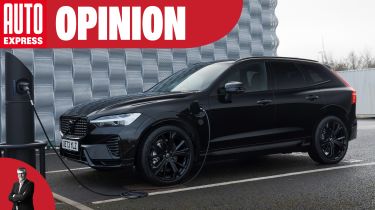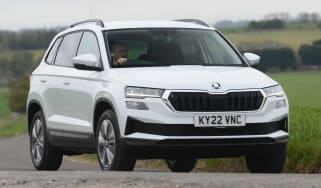Stricter plug-in hybrid emissions tests are the answer to a question no-one asked
Editor Paul Barker takes a closer look at plug-in hybrids and wonders if the new stricter tests will actually work

Plug-in hybrid technology has always been something of an outlier. It’s not a powertrain anyone gets passionately worked up about – but everything about PHEVs seems to pull in opposite directions.
The tech is seen by some as a great bridge to going full electric, getting used to charging and understanding how frequently you do longer trips, but with a petrol engine removing any of the anxiety some attach to public top-ups.
But for others it’s the answer to a question no-one asked. If the majority of your journeys are short enough to run largely on a battery, then a full electric car is perfectly usable. And if you’re doing a lot of long journeys, then lugging the heavy batteries around may result in worse economy than you could get with a modern petrol engine. What is sure is that PHEVs only make real sense if you can charge at home, or cheaply at work.
The news that new PHEVs launched this year will face stricter tests that will significantly bump up their emissions ratings is interesting, in part because it doesn’t really solve anything. There have been lots of complaints about 200mpg-plus official figures on plug-ins, but ever since the first PHEVs arrived, there’s not been a type of car where its economy is so affected by usage.
Depending how you drive a petrol car, there may be a variance of 10mpg. Likewise, 0.5 miles per kWh on an EV. But with the best plug-ins now doing well over 60 miles on a charge, it’s easy to see drivers fuelling every two months despite covering large distances. When I’ve run PHEVs, in some months I’ve achieved more than 150mpg, and in others the figure has fallen below 40mpg if I regularly went beyond the battery’s range and ignited the petrol engine.
These new tests, in which PHEVs complete a 1,367-mile cycle rather than the previous 497-mile assessment, mean the battery will contribute a lesser amount, naturally cutting the efficiency and increasing emissions. This may be more realistic for some, but it will also create short-term uncertainty, bump up VED bills and dissuade company car drivers in particular from moving to this halfway-house tech on the road to a full EV – while still not revealing what an individual driver can expect to achieve, because everyone uses their car in a different way.
Do you agree with Paul? Let us know your thoughts in the comments section...








